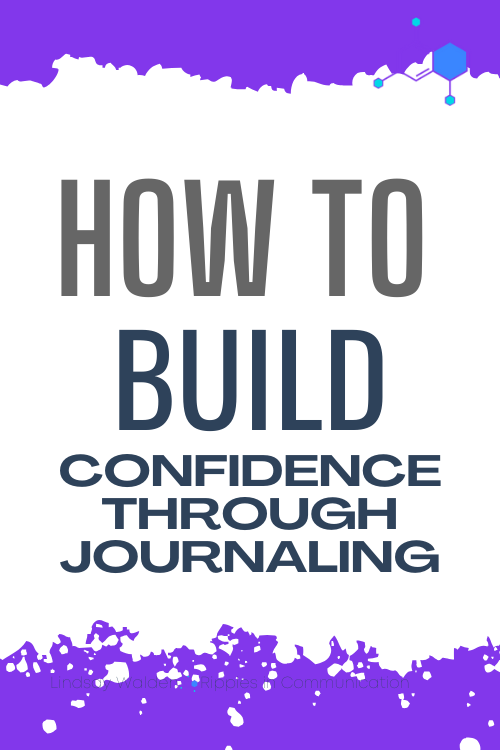How to Use Journaling to Strengthen Self-Worth and Confidence
Have you ever had a moment where no matter how much you achieve, it still doesn’t feel like enough?
That quiet voice whispers: “I don’t feel good enough.” “Everyone else seems to have it figured out but me.” “I second-guess everything I do.” “I wish I believed in myself—but I don’t know how.”
If that sounds familiar, you’re not alone.
So many of us chase success, perfection, or external approval in hopes that confidence will follow. But the truth is, real confidence doesn’t come from what you achieve. It comes from how you see yourself, and how you speak to yourself when no one else is listening.
And that’s exactly where journaling becomes a powerful tool for healing and transformation.
Have you grabbed your FREE CNT Toolkit Sampler yet? It’s packed with science-backed tools designed to help you regulate emotions, manage stress, and develop deep self-awareness. If you’ve ever felt overwhelmed by your reactions or stuck in negative thought patterns, this toolkit will give you the proven strategies I use with clients to help them strengthen emotional neutrality, rewire unhelpful responses, and build lasting resilience. Inside, you’ll find practical exercises and guided reflections to help you navigate challenges with clarity and confidence. Enter your email below, and I’ll send it straight to your inbox!
Why Self-Worth Isn't Built by Achievement
We’re often taught that if we do enough, achieve enough, or appear “together,” then we’ll finally feel confident. But confidence isn’t the absence of doubt—it’s the ability to move forward despite it.
True self-worth comes from within. It’s shaped by your beliefs, your inner dialogue, and the thoughts you repeat to yourself every single day.
If your mind constantly loops with “I’m not good enough,” your brain eventually treats that thought as fact. But the incredible thing is, your brain can be trained to think differently.
And journaling is one of the most effective ways to make that shift.
The Science Behind Journaling and Self-Worth
Research shows that reflective writing actually changes how your brain processes thoughts and emotions. When you write things down, your prefrontal cortex (your brain’s logic and reasoning center) helps regulate the emotional centers tied to shame, fear, and doubt.
Journaling has been shown to:
Increase self-awareness, so you can recognize and challenge negative self-talk.
Build self-compassion, so you become less harsh and more supportive with yourself.
Rewire your brain to default to more empowering beliefs over time.
In simple terms: writing gives your mind a new script. And the more often you use it, the stronger your sense of worth becomes.
3 Journaling Practices to Build Confidence From the Inside Out
If you want to start building self-trust and confidence right now, here are three simple but deeply impactful exercises to try.
1. Rewriting the Inner Critic
If you’ve ever caught yourself thinking, “I’m not good enough,” start here.
Write the belief down. Then ask:
Where did this belief come from?
Is it actually true—or is it just something I’ve repeated for years?
What would I say to a friend who said this about themselves?
What’s a more honest, supportive thought I can choose instead?
This method works because your thoughts aren’t facts—they’re habits. And you have the power to choose new ones.
2. Gathering Evidence of Your Strength
Self-doubt makes us forget how far we’ve come.
Start by writing one area where you feel unsure of yourself. Then list three times in your past when you faced something similar and handled it with courage, creativity, or resilience.
End your entry with a reminder: “I’ve done hard things before. I’ll handle this too.”
The goal here is to reconnect with the truth: you are far more capable than your doubt wants you to believe.
3. Writing a Self-Appreciation Letter
We often give more compassion to others than we give to ourselves. This practice flips that pattern.
Write yourself a letter as if you were encouraging a dear friend. Tell yourself what you appreciate. Acknowledge your growth. Offer gentle reassurance.
Even a short letter can shift your inner dialogue—and remind you that you are worthy of kindness, even from yourself.
Quick Confidence Reset: Try This Right Now
If you’re feeling low or uncertain, pause for just a minute.
Write down one thing you genuinely appreciate about yourself. Then ask, “Why does this matter to me?”
Even something as simple as “I’m proud of how I stayed calm under pressure today” can build a foundation of inner strength.
Confidence isn’t built in giant leaps—it’s created in small, consistent acts of self-recognition.
The Anytime Journal: A Daily Companion for Building Confidence
Unlike traditional journals that just log your day, the Anytime Journal was designed to help you build a relationship with yourself. One that’s grounded in truth, compassion, and strength.
With built-in prompts and exercises based on Cognitive Neuro Therapy principles, it helps you:
Reframe doubt into self-trust
Strengthen your emotional awareness
Build an internal foundation of worth that doesn't depend on others' approval
You don’t need to wait for success to feel good enough. You just need the right tools to remind yourself you already are.
Final Thoughts: You Don’t Need to Be Perfect to Feel Worthy
Most people stay stuck in self-doubt because they:
Compare themselves constantly
Rely on external validation
Let inner criticism go unchallenged
But confidence grows when you stop waiting to feel worthy—and start practicing being kind to yourself right now.
So instead of asking, “How can I be more confident?” Ask, “How can I trust myself a little more today?”
That question alone could change everything.






